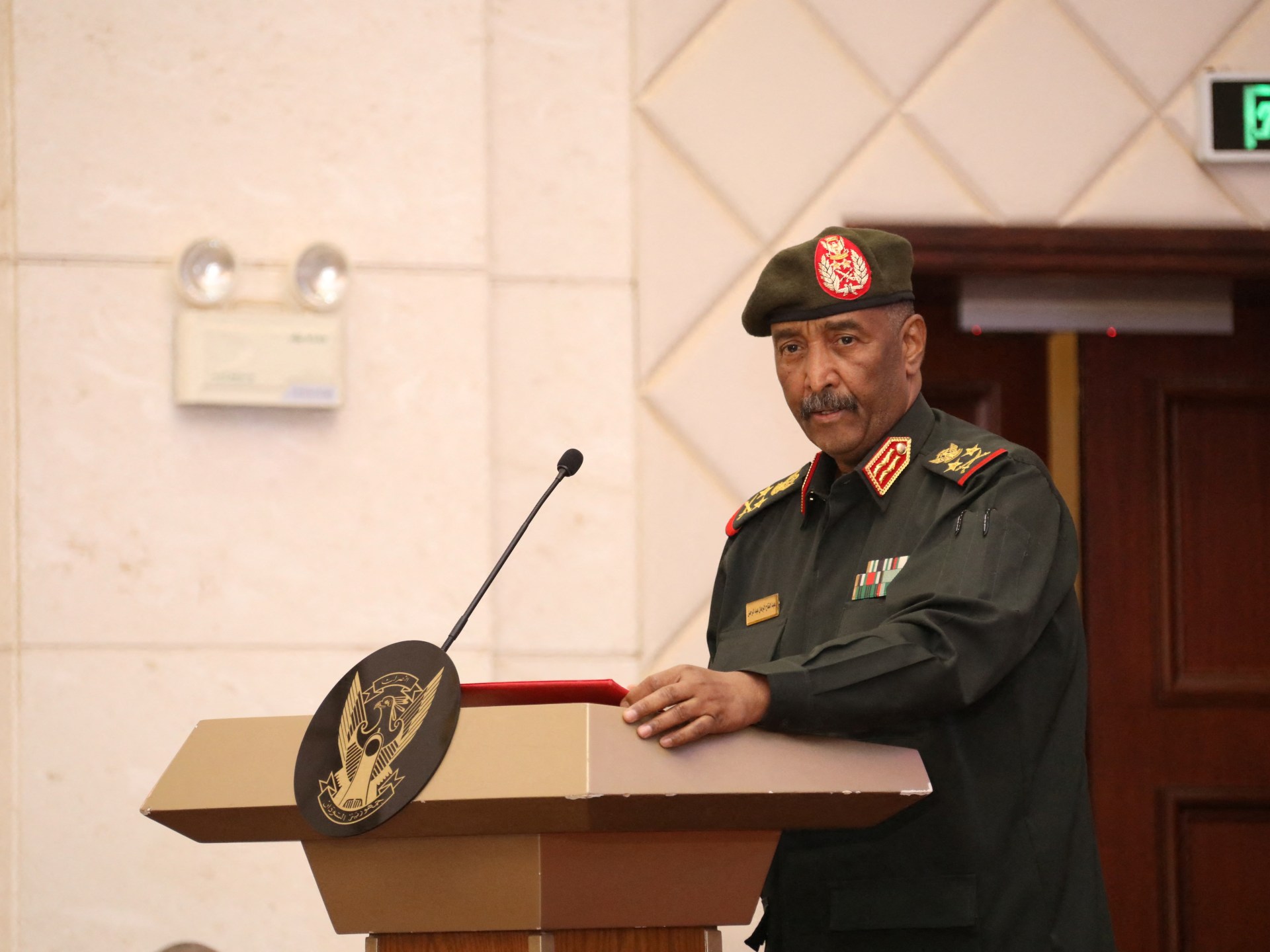The head of the Transitional Sovereignty Council, the commander of the Sudanese army, Abdel Fattah Al-Burhan, denied on Saturday that the army was planning to overthrow the framework agreement.
This came in a speech he made during a group wedding on the second day of his tour in the state of River Nile (North), according to a statement of the Transitional Sovereignty Council.
Al-Burhan said, "There are those (whom he did not name) who were frightened by our rounds, and they thought that we were about to evade the framework agreement."
He added, "The armed forces are not planning a coup against what they agreed upon, but rather seek the Sudanese to agree and unite to get the country out of its current situation, and it is continuing to search for solutions that can bring people together."
Al-Burhan stressed that "the army is not against anyone, and it signed the framework agreement not to exclude others, and that the discussion on issues agreed upon should include all political forces except for the National Congress (the party of ousted President Omar al-Bashir 1989-2019)."
He also called on all parties to "stop advancing the political process in isolation from the rest of the political forces."
"share everyone"
On Friday, Al-Burhan said on a similar occasion in Kabushiya in the River Nile state, "The army does not want to proceed with the framework agreement with one side, but rather wants everyone to participate in its implementation."
On January 8, the final stage of the political process began between the signatories to the framework agreement concluded on December 5, both military and civilians, to reach a final and just political agreement.
The tripartite mechanism consisting of the United Nations, the African Union and the Intergovernmental Authority on Development (IGAD), and the Quartet consisting of the United States, Britain, Saudi Arabia and the UAE, participated in the framework agreement consultations.
The agreement aims to resolve the Sudanese crisis that has been going on since October 25, 2021, when Al-Burhan imposed exceptional measures, including the dissolution of the Sovereign Council and the transitional ministers, the arrest of ministers and politicians, the declaration of a state of emergency and the dismissal of governors (governors).
And before Al-Burhan's exceptional procedures, a transitional phase began in Sudan on August 21, 2019, which was scheduled to end with elections in early 2024. Power during the transitional phase will be shared by the army, civil forces, and armed movements that signed a peace agreement with the government in Juba in 2020.

